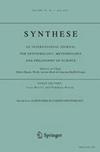映射神经科学中的解释性语言
IF 1.3
1区 哲学
Q1 HISTORY & PHILOSOPHY OF SCIENCE
引用次数: 0
摘要
关于神经科学科学解释的哲学文献一直以机制思想为主导。机械论哲学家经常声称,神经科学从事的是寻找机制的工作。这一观点在许多方面受到了挑战,因为在神经科学中还有其他成功和广泛的解释策略。然而,迄今为止缺乏所有这些主张的经验证据。关于神经科学中各种解释策略的普遍性和使用的经验证据是特别需要的,因为迄今为止用于说明哲学主张的例子和案例研究往往是精心挑选的。因此,确认偏误的风险是相当大的:当寻找白天鹅时,人们发现的只是天鹅是白色的。我们在本文中提出的对大量相关文献进行的更系统的定量和定性文献计量学研究可以对这些主张进行透视。使用文本挖掘工具,我们确定了文献中所谓的机械、动态和拓扑解释中使用的典型语言模式,它们的优势以及它们如何随时间变化。我们的研究结果表明,机械语言的大量使用,以及使用拓扑和动态解释语言的重要神经科学文献的存在,随着时间的推移,它们越来越多地相互区分,并与机械解释区分开来。本文章由计算机程序翻译,如有差异,请以英文原文为准。
Mapping explanatory language in neuroscience
Abstract The philosophical literature on scientific explanation in neuroscience has been dominated by the idea of mechanisms. The mechanist philosophers often claim that neuroscience is in the business of finding mechanisms. This view has been challenged in numerous ways by showing that there are other successful and widespread explanatory strategies in neuroscience. However, the empirical evidence for all these claims was hitherto lacking. Empirical evidence about the pervasiveness and uses of various explanatory strategies in neuroscience is particularly needed because examples and case studies that are used to illustrate philosophical claims so far tend to be hand-picked. The risk of confirmation bias is therefore considerable: when looking for white swans, all one finds is that swans are white. The more systematic quantitative and qualitative bibliometric study of a large body of relevant literature that we present in this paper can put such claims into perspective. Using text mining tools, we identify the typical linguistic patterns used in the alleged mechanistic, dynamical, and topological explanations in the literature, their preponderance and how they change over time. Our findings show abundant use of mechanistic language, but also the presence of a significant neuroscience literature using topological and dynamical explanatory language, which grows over time and increasingly differentiates from each other and from mechanistic explanations.
求助全文
通过发布文献求助,成功后即可免费获取论文全文。
去求助
来源期刊

Synthese
管理科学-科学史与科学哲学
CiteScore
3.30
自引率
13.30%
发文量
471
审稿时长
1 months
期刊介绍:
Synthese is a philosophy journal focusing on contemporary issues in epistemology, philosophy of science, and related fields. More specifically, we divide our areas of interest into four groups: (1) epistemology, methodology, and philosophy of science, all broadly understood. (2) The foundations of logic and mathematics, where ‘logic’, ‘mathematics’, and ‘foundations’ are all broadly understood. (3) Formal methods in philosophy, including methods connecting philosophy to other academic fields. (4) Issues in ethics and the history and sociology of logic, mathematics, and science that contribute to the contemporary studies Synthese focuses on, as described in (1)-(3) above.
 求助内容:
求助内容: 应助结果提醒方式:
应助结果提醒方式:


